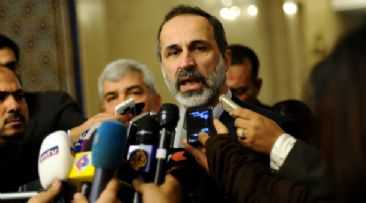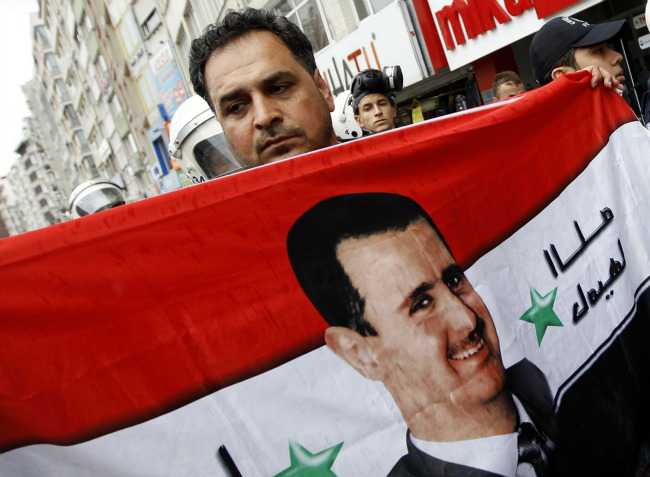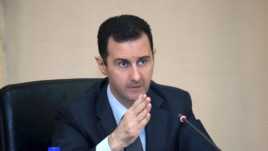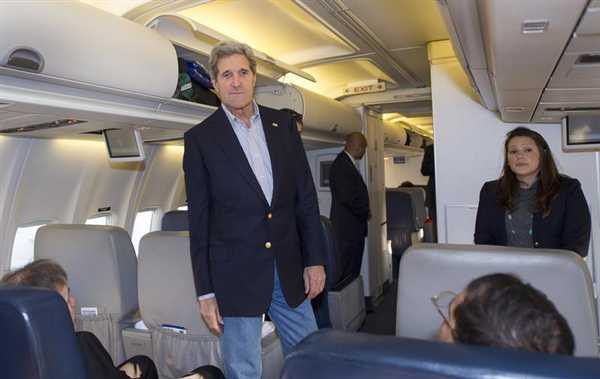Syria is a country where moderate Islam dominates, said Khatib, President of Syrian National Coalition.
 ISTANBUL — President of the Syrian National Coalition for Opposition and Revolutionary Forces, Ahmad Moaz al-Khatib said that Syria was a country where moderate Islam dominated.
ISTANBUL — President of the Syrian National Coalition for Opposition and Revolutionary Forces, Ahmad Moaz al-Khatib said that Syria was a country where moderate Islam dominated.
A conference on “Islam and Just Transition in Syria” began in Istanbul so the Syrian Muslim scholars could put forward their approaches to the transitional process in Syria.
A high number of Syrian Muslim scholars and important names of the Syrian opposition attended the conference.
Speaking at the inauguration of the conference, al-Khatib underlined that in order for Islam’s real message to be understood, a revolution must take place in human’s understanding of religion.
Due to wrong methods, small problems occupy more time than greater problems, al-Khatib noted.
The aim of the revolution was to free humans, al-Khatib stated.
“Everyone should receive just treatment. Otherwise, anarchy would prevail and humans, based on certain reasons, would cause the spill of blood of others. There is tyranny in our country (Syria) as never seen before. A serious danger awaits us in the future. There is need for serious works so humans do not violate each other’s rights,” al-Khatib underlined.
Criticizing Al-Qaeda’s call to establish an Islamic state in Syria, al-Khatib advised those fighting in Syria not to listen to thoughts coming from outside.
” Syria was a country where moderate Islam dominated.Syria is the center of enlightenment. Syria has a large number of scholars. Scholars of Syria can help each other,” al-Khatib said.
“Revolution to continue until victory arrives”
Chairman of the Syrian National Council (SNC), George Sabra underlined that the Syrian regime persecuted its own people and the world acted as if they were blind.
“Revolution will continue until victory arrived. Justice will come with victory. Unless there is just punishment, justice can not be established. There will be a just constitution in new Syria and there will not be discrimination against any person or group. We will not treat those guilty with revenge. There will be just trials. Upcoming days would be nice,” Sabra stated.
”Syria will belong to all Syrians”
Prime Minister of the Syrian interim government, Ghassan Hitto emphasized the importance of Islam’s message while moving to a state of law with justice and equality from a regime which placed pressure on people.
A consensus will take place in Syria on a strong societal structure, Hitto said.
“Syria will belong to all Syrians. Damages incurred by Syrian people would be compensated. The Justice Ministry would be restructured and just trials will take place,” Hitto noted.
The conference will end on Tuesday.
Islamic NGOs reject al-Qaeda announcement for “Islamic State in Iraq and Damascus”
Syrian Islamic non-governmental organizations (NGOs) rejected announcement made by “Iraqi Islamic State” organization, the Iraqi wing of al-Qaeda, on the establishment of an “Islamic State in Iraq and Damascus”.
In a joint statement made, the Union of Syrian Muslim Scholars, Union of Damascus Scholars, Union of Syrian Revolutionary Ulema and Inviters, and Syrian Islamic Forum underlined that al-Qaeda organization did not represent the people of Syria.
“It is unacceptable to see a group, without a government or a certain territory, to announce the establishment of a state by not consulting with the relevant people and the scholars of the region and forcing the people to obey them. Our people have the strength to establish their own state with their own power and means,” the statement said.
Referring to the Nusra Front in Syria and comments made by leader of the Nusra Front Abu Muhammad al-Golani that they were attached to al-Qaeda, the statement said “your struggle along with other armed groups in Syria is known and your support to the struggle is well appreciated. The people’s calling themselves ‘We are all Nusra Front’ on a Friday is an indication of the appreciation”.
“Nusra Front’s declaration of attachment to al-Qaeda strengthens the hands of the Assad regime, presents the justification foreign powers need to intervene in Syria, and gives the excuse to the Syrian government to react against those ‘terrorists’ fighting in Syria. We call on our brethren at the Nusra Front to end obeying al-Qaeda and consult with those warriors on the field and scholars,” the statement underlined.
“There is no bigger terror than that applied by the Syrian regime”
“Our people will consider it a conspiracy against itself if an intervention takes place targeting the groups fighting in Syria or if the Syrian people were placed under a blockade with an excuse of ‘struggling against terrorists’. There is no bigger terror than that applied by the Syrian regime. We reject the intervention of all forms of organizations to determine the future of the Syrian state as well as any imposition from the international community to us to sit down with the Syrian regime at the table. The future of Syria will be determined by those who love Syria,” the statement also said.
Al-Qaeda’s Iraqi wing, “Iraqi Islamic State” organization on April 9 had announced that they united with the Nusra Front.
Nusra Front leader Abu Muhammad al-Golani had said that they had not taken a joint decision with the “Iraqi Islamic State” organization but that they were attached to al-Qaeda.
16 April 2013
Anadolu Agency





